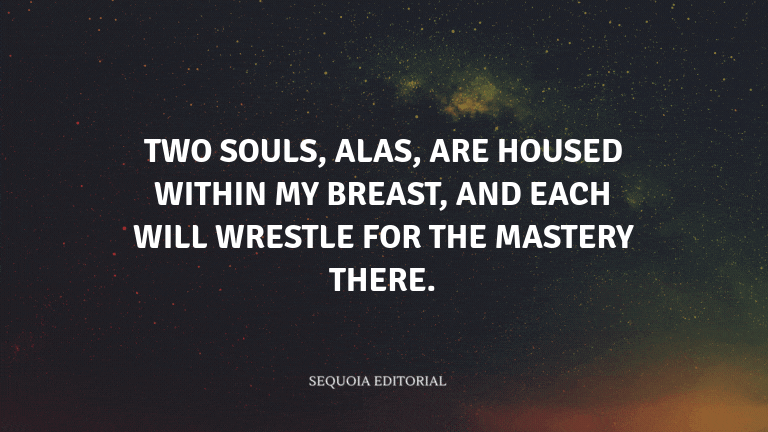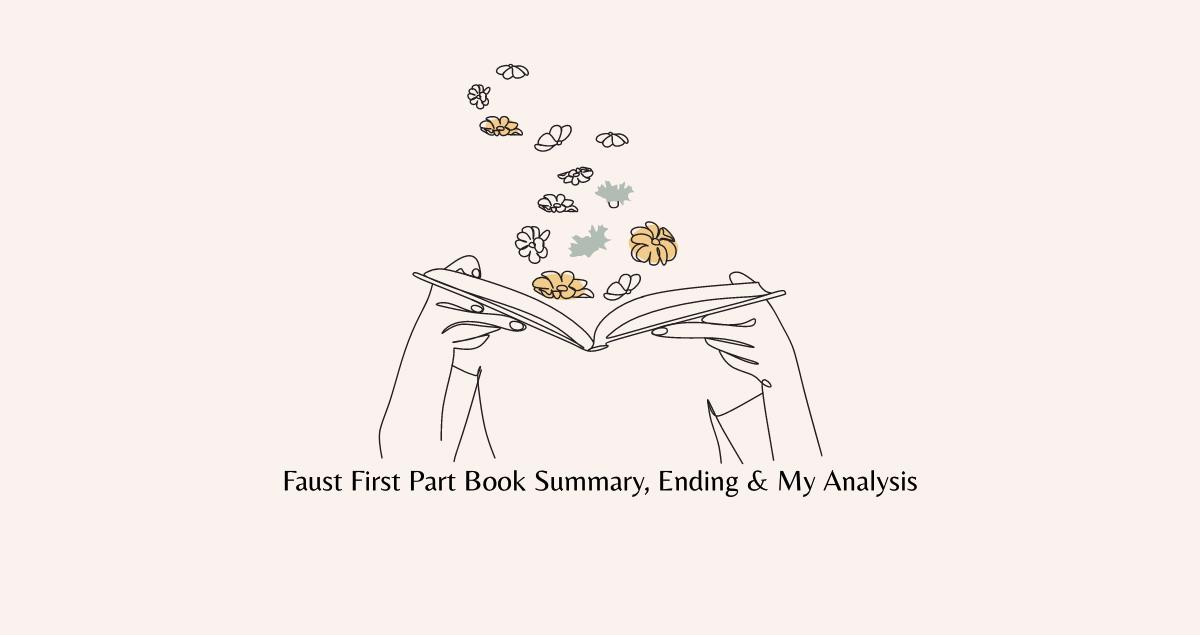Faust First Part is about an aging scholar who makes a pact with the devil, trading his soul for unlimited knowledge and worldly pleasures. Through a series of events, Faust experiences love, despair, and redemption, ultimately struggling with the consequences of his choices.
Table of Content
Faust First Part Book Summary
Dr. Faust, a weary scholar, longs for more knowledge and experience. Mephistopheles, the devil, offers him a deal: in exchange for his soul, Faust will have all his desires fulfilled. Faust hesitates but eventually signs. His life is transformed.
Now young, Faust becomes infatuated with the innocent Gretchen. Mephistopheles arranges a meeting. They fall in love, but Faust's and Mephistopheles' schemes lead to tragedy; Gretchen's family suffers, and she is abandoned.
Gretchen's life unravels. She gives birth to Faust's child, which she drowns. Gretchen is imprisoned for the murder. Faust desperately tries to save her, but she refuses to leave, seeking divine forgiveness in her despair.
Valentin, Gretchen's brother, is killed in a duel instigated by Faust. Margarete's Mother dies of a broken heart. The family's home is now filled with sorrow and death.
The second half of the play is more reflective and philosophical. Faust and Mephistopheles engage in various ventures, from organizing a festival to managing a kingdom. Faust's thirst for knowledge and experience is relentless.
Eventually, Faust becomes a successful ruler, but his people suffer. He seeks to improve their lives by reclaiming land from the sea, a project that ultimately leads to disaster.
As Faust's life nears its end, he dreams of a perfect moment to freeze time. Mephistopheles tempts him with a proposition, but Faust rejects it. He longs for something unattainable.
Gretchen, now saved and forgiven by God, appears to Faust, granting him a glimpse of the divine. She leads his soul to salvation, and Faust dies, his life's desires unfulfilled.
Angels descend to carry Faust's soul to heaven, where he is received as one who constantly strove. Earthly forces led by Mephistopheles try to claim him, but they are defeated.
The people Faust had sought to help now recognize his true value, and they celebrate his life. The legacy of his goodness prevails over any mistakes or sins he committed.
In a final twist, Mephistopheles is tricked and left with nothing. Faust's soul is redeemed, and the tale of his profound struggle comes to an end, leaving a complex legacy of human ambition and the search for meaning.
Faust First Part Quotes
- Two souls, alas, are housed within my breast, and each will wrestle for the mastery there.

- The world is a web; and men and women are but the spiders who spin it.

Faust First Part Ending Explained
At the end of Faust First Part, Faust, the protagonist, is at the twilight of his life. His soul is claimed by both King and Devil, reflecting the duality of his existence.
However, through the redemptive power of love and faith, personified by the now redeemed Gretchen, Faust's soul is ultimately lifted to heaven by angels. His life's work is celebrated and his legacy becomes one of hope and inspiration to those he sought to benefit in his lifetime.
Mephistopheles, the devil, is outwitted, and Faust's quest for transcendence over the limitations of humanity is realized in his final moments, offering a profound reflection on the nature of existence and the pursuit of happiness.
Characters in book Faust First Part
- Faust: An aging scholar who is dissatisfied with his life and makes a pact with Mephistopheles to exchange his soul for unlimited knowledge and earthly pleasures.
- Mephistopheles: A demon who serves as Faust's companion and fulfills his desires, tempting him with various experiences.
- Gretchen: A young and innocent girl whom Faust seduces, leading to her tragic downfall.
- Marthe Schwerdtlein: Gretchen's neighbor, who becomes romantically involved with Mephistopheles through a comical turn of events.
- Valentin: Gretchen's brother, a soldier who becomes a victim of Faust and Mephistopheles' schemes.
- Wagner: Faust's assistant and a student who admires and emulates his mentor.
- The Lord: A divine figure who appears in the Prologue in Heaven and represents the forces of good.
- The Earth Spirit: A mythical creature with wisdom and insight who communicates with Faust.
- Margarete's Mother: A character who is worried about her daughter's well-being and becomes entangled in the tragic events surrounding Gretchen.
- Margarete's Brother: A soldier whose death is caused by Faust and Mephistopheles, leading to further sorrow for the family.
- Lynceus: A mythological figure representing watchfulness who is invoked by Martha in a playful conversation with Mephistopheles.
Key Lessons
- Seeking Fulfillment: Desiring endless knowledge and pleasure may lead to the neglect of simple yet profound sources of joy and contentment.
- Consequences of Choice: Every decision has consequences, and the choices one makes can have far-reaching effects on individual lives and the world at large.
- Redemption and Hope: No matter how deep one's despair, there is always the possibility of redemption through love, faith, and the pursuit of good deeds.
- The Human Condition: The struggle between good and evil, the folly of human ambition, and the quest for meaning are fundamental aspects of the human experience.
- Legacy and Memory: The impact of one's actions and character is reflected in the way they are remembered and honored after death, shaping the legacy left behind.
My Personal Opinion
Is Faust First Part worth reading? I would say yes, I found it to be a profound exploration of the human condition and the pursuit of knowledge and happiness.
I was captivated by the depth of Faust's character and the moral complexities he faced. The vivid and often poetic language used throughout the story added to its beauty and depth. However, I did find some parts quite dense and requiring deep thought to fully grasp the meaning, which might not suit all readers.
I would recommend this book to those who are interested in classic literature and philosophical works. It is particularly appealing to readers who enjoy thought-provoking narratives that invite contemplation on life's biggest questions and the nature of good and evil.

